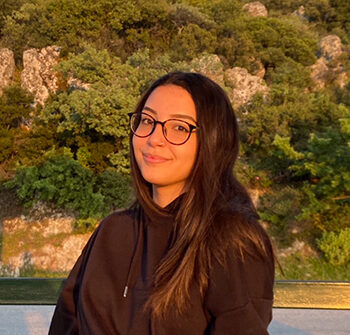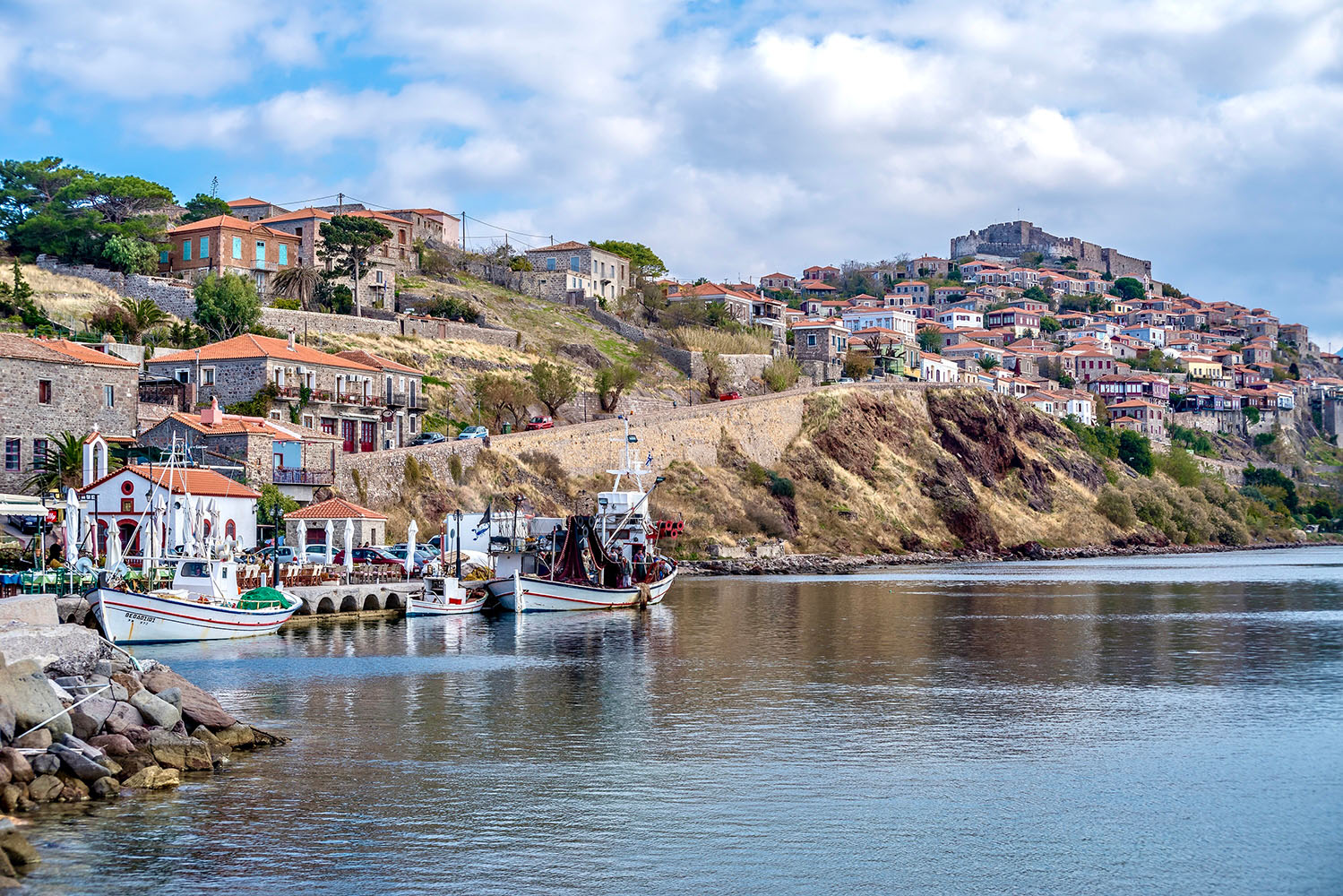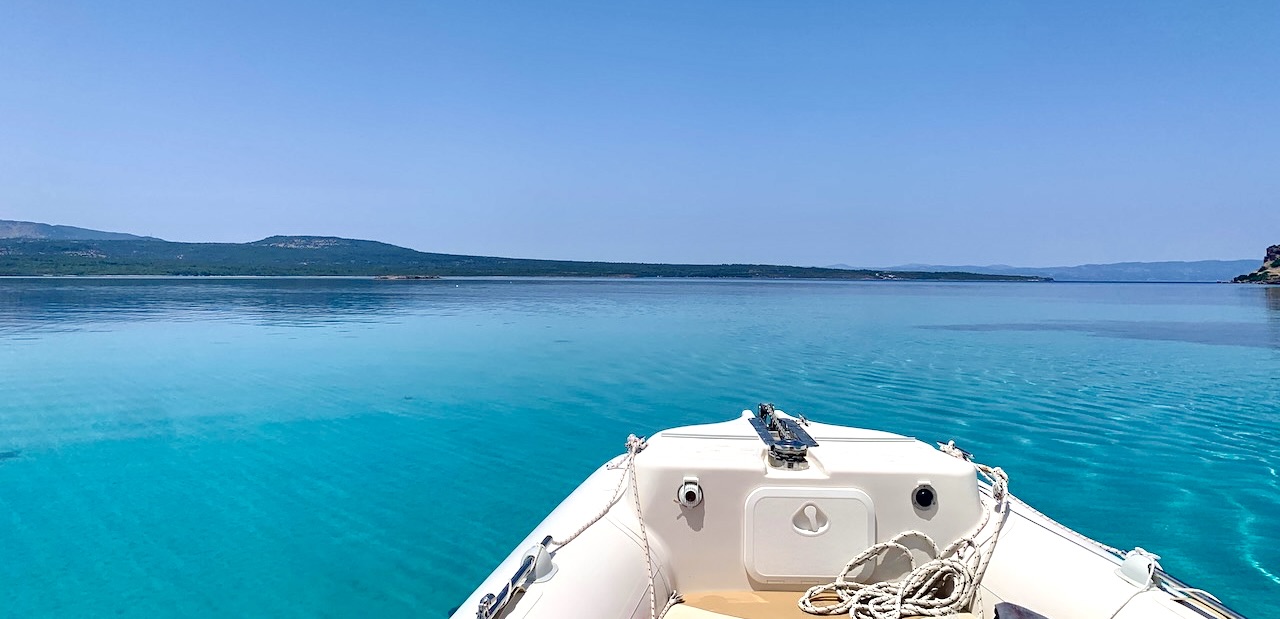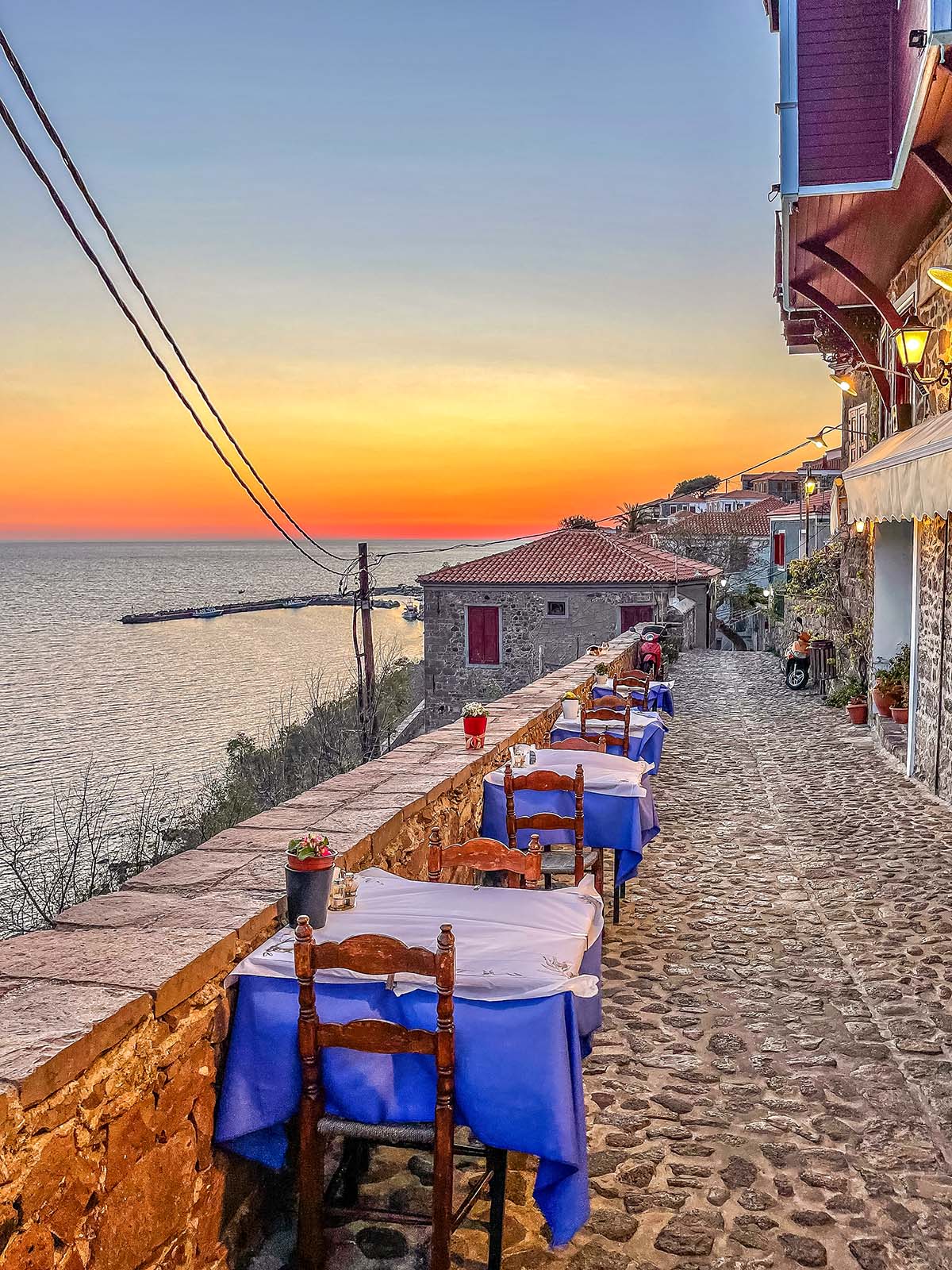FAQs about Greece and Lesvos Island: Everything You Need to Know
Welcome to our in-depth FAQ guide, with all the answers to help you plan a trip to explore the beauty of Greece and the hidden gem, Lesvos island. Whether you're planning your Mediterranean vacation, eager to savour the delights of Greek cuisine, or eager to uncover the Lesvos attractions, this guide has you covered. We've gathered the most common questions and provided detailed answers to ensure you have all the information you need to make your Greek adventure unforgettable.
When is the best time to visit Greece?
The best time to visit Greece and Lesvos island depends on your preferences. Spring and autumn are often considered the optimal times, offering a balance of pleasant weather and fewer crowds. If you're a beach enthusiast and enjoy the lively atmosphere of summer, then that season may be your ideal choice for exploring the beautiful Greek islands, including Lesvos. Winter holidays in Greece offer a unique and tranquil escape from the hustle and bustle of everyday life. While Lesvos island is often associated with its vibrant summer season, the winter months bring a different charm.
What are the best beaches in Greece?
The best beaches in Greece are a true paradise for beach lovers. With crystal-clear waters, golden sands, and breathtaking landscapes, these coastal gems provide a perfect backdrop for relaxation and water activities. While Greece boasts numerous famous beach destinations, there's one that deserves your attention: Lesvos. Although not as famous as other islands, with over 320 km of coastline, Lesvos has beaches to suit every taste. To discover the beach treasures of Lesvos and why it's a must-visit destination, read our dedicated blog.
What are the best things to do in Greece?
- Visit the Acropolis: No trip to Athens is complete without exploring the Acropolis, an ancient citadel with iconic structures like the Parthenon. It's a UNESCO World Heritage site and a symbol of ancient Greek civilization.
- Relax on the Greek Islands: Greece is known for its beautiful islands. Aside from Santorini and Mykonos, consider Samos, Chios, and Lesvos. Each offers unique experiences, from vibrant nightlife to tranquil beaches.
- Savour Greek Cuisine: Taste authentic Greek dishes like moussaka, souvlaki, gyros, and Greek salad. Don't forget to try local specialities in the different regions.
- Enjoy Watersports: The clear waters around the islands are perfect for snorkelling, scuba diving, windsurfing, and more.
- Experience Greek Festivals: If you can, time your visit with a local festival or religious celebrations. These events offer a unique glimpse into Greek culture.
What are the best places to stay in Greece?
When it comes to the best places to stay in Greece, each destination offers a unique experience. From the vibrant city life of Athens to the breathtaking caldera of Santorini, Greece has it all. But for a truly authentic Mediterranean vacation with rich Greek cuisine, Lesvos island stands out. It's a beautiful place with amazing sunsets, pretty villages and gorgeous beaches, plus the best charming accommodation, available through Real Lesvos. Whether you prefer modern villas or cosy guesthouses, Lesvos provides a tranquil escape with a touch of local authenticity. Let us plan your ideal stay! Plus you get a dedicated service of our in-resort support, helping you with all aspects of your holiday from booking the best car hire to restaurant reservations and arranging everything from cooking lessons and to boat trips.
How do I get around Greece?
Navigating Greece is a straightforward affair with a range of transportation options at your disposal. The country's public transport system encompasses buses, trams, and the efficient Athens Metro, making it easy to traverse urban areas. Taxis are readily available and can be flagged down on the street or conveniently pre-booked. During your Lesvos island holiday, Real Lesvos can pre-book your taxis and transfers for peace of mind. For those seeking independent adventures, car rentals from Real Lesvos offer a range of options to suit your needs. Given Greece's numerous islands, ferries and boats are popular choices for island hopping, ensuring you can explore destinations like Lesvos island with ease. If your journey takes you further, domestic flights operated by various Greek airlines provide a convenient mode of travel. Walking and biking offer a delightful and eco-friendly means of exploration, with Real Lesvos providing walking itineraries, bikes, and e-bikes to enhance your holiday experience. With Real Lesvos, consider the thrill of renting scooters or ATVs for a dynamic and fun way to discover local attractions, including Lesvos island.
Is Greece expensive to travel to?
Greece offers a range of options for travellers with varying budgets. The cost of your trip can vary depending on factors like the time of year, choice of accommodation, dining preferences, and activities. Generally, Greece is considered a budget-friendly destination, especially when compared to other Western European countries.
Lesvos island, known for its unique charm and authenticity, is also one of the best value islands in Greece and can offer budget-friendly accommodations, local cuisine, and a wide array of low cost attractions to explore. Real Lesvos provides various accommodation options to suit different budgets, making it easier to plan your Mediterranean vacation to the beautiful Lesvos island.
Do I need a visa to travel to Greece?
Greece is a member of the European Union and the Schengen Area. If you are a citizen of a Schengen Area country or a country that has a visa-free agreement with the Schengen Area, you generally do not need a visa to enter Greece for short stays (up to 90 days within a 180-day period). Keep in mind that visa requirements can change, and it's essential to verify the current regulations before you travel.
What currency is used and are credit cards widely accepted in Greece?
The official currency of Greece is the Euro (€). Credit cards, especially in larger cities and tourist areas, are widely accepted. However, it's advisable to carry some cash, particularly in more remote areas or when visiting smaller establishments, as there might be places that prefer or only accept cash payments.
What are some basic Greek phrases I should learn?
Learning a few basic Greek phrases can enhance your travel experience and show respect for the local culture. Here are some essential Greek phrases to get you started:
- Hello - Γειά σας (Yia sas)
- Please - Παρακαλώ (Parakalo)
- Thank you - Ευχαριστώ (Efcharisto)
- Yes - Ναι (Ne)
- No - Όχι (Ochi)
- Excuse me - Συγγνώμη (Signomi)
- Good morning - Καλημέρα (Kalimera)
- Good afternoon - Καλησπέρα (Kalispera)
- Good evening - Καληνύχτα (Kalinichta)
- How much is this? - Πόσο κοστίζει αυτό; (Poso kostizei afto?)
- My name is... - Το όνομά μου είναι... (To onoma mou einai...)
- Can you speak English? - Μιλάτε αγγλικά; (Milate anglika?)
While many Greeks working in the tourism industry speak English, locals will appreciate your efforts to use their language. Don't worry if your pronunciation isn't perfect; Greeks are usually very understanding and grateful when travellers try to communicate in Greek.
Our FAQ guide is your gateway to finding out more about visiting Greece. If you have more questions then we would be happy to answer them - please do get in touch here. From ideal Mediterranean vacations to savouring Greek cuisine and exploring Lesvos attractions, we've got the answers to your questions: find the best time to visit, discover top beaches, and experience must-do activities. Lesvos, a tranquil escape with rich culture, delicious Greek cuisine and authentic accommodations by Real Lesvos, awaits your visit. Let us help you plan your ideal trip (while you learn some Greek phrases!) for an enriched and memorable holiday experience. Your Greece trip begins here!













